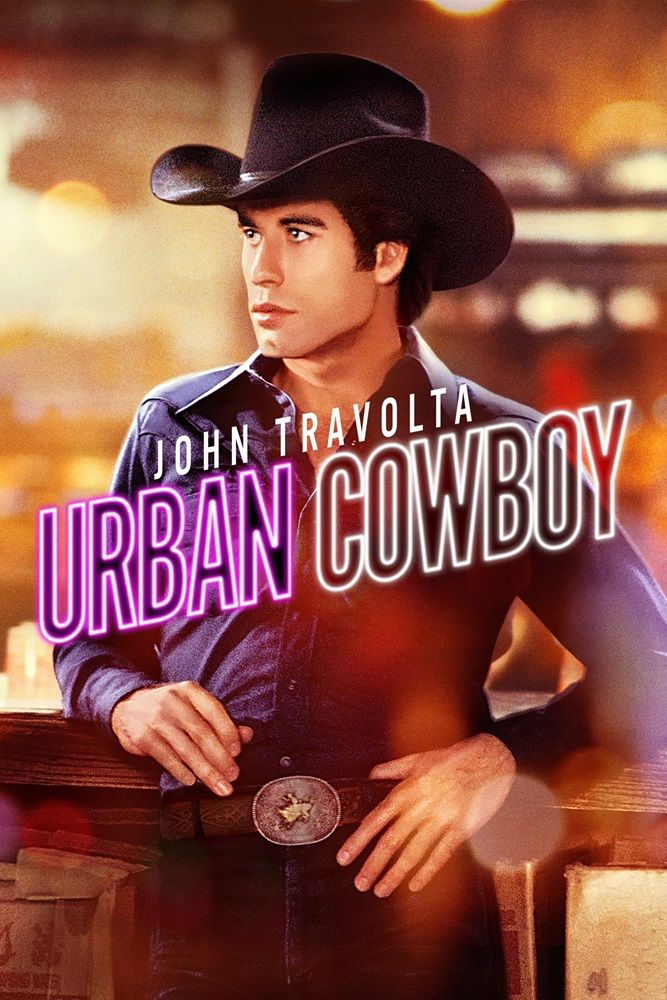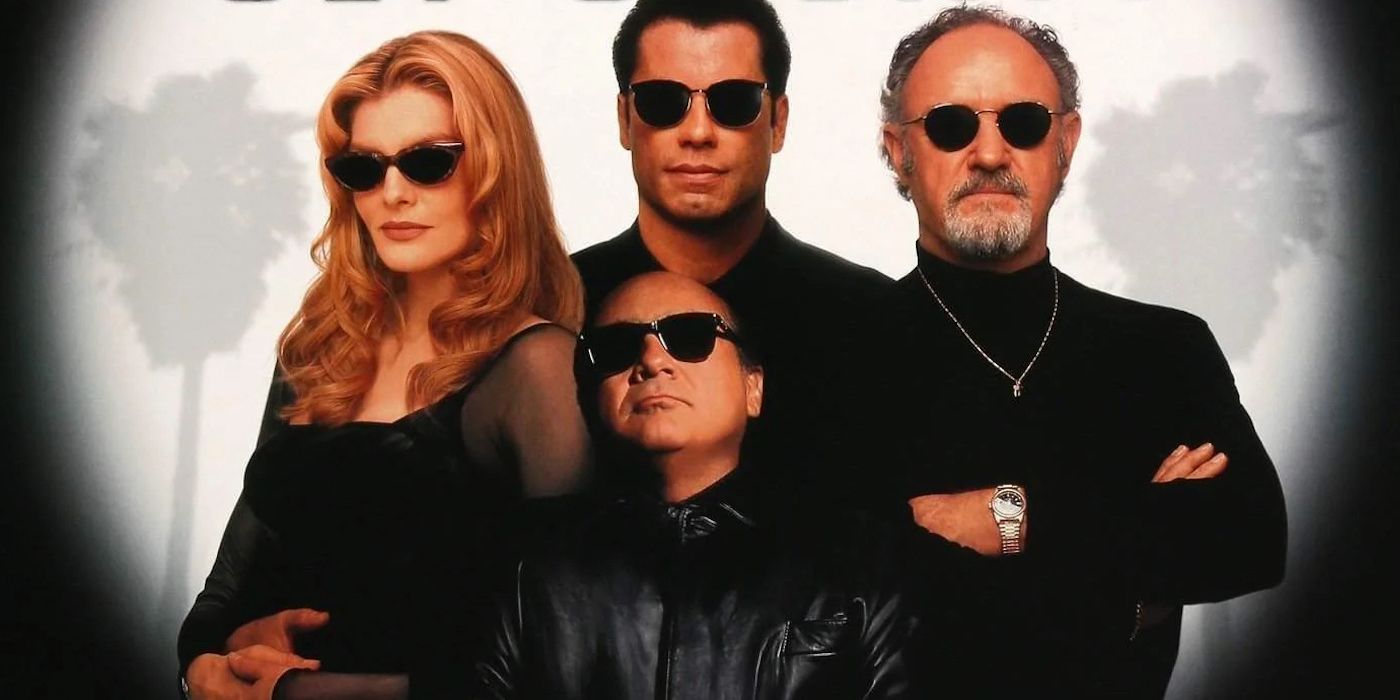Travolta has never been as intimate and vulnerable as he was here.
The Big Picture
- John Travolta’s role in
Urban Cowboy
showcased his willingness to challenge his established image and take on more mature roles. - The film provided a realistic depiction of small-town life, highlighting the charm and simplicity of a closed-off world.
- Despite being entrenched in traditional Western values, the romantic storyline in
Urban Cowboy
featured relatively progressive dynamics between the two romantic partners.
Although now he primarily stars in low-budget crime films, action thrillers, and future cult classics (such as the bizarre stalker film The Fanatic and the misguided mafia biopic Gotti), it’s easy to forget that John Travolta was once the most popular young romantic heartthrob of his generation. Travolta had immediately established himself as an actor of charisma, humor, and dramatic intensity with his roles in Carrie, Saturday Night Fever, and Grease, which showed that he could apply his unique personality to nearly any genre scenario. However, long before directors like John Woo and Quentin Tarantino put him back on the map, Travolta showed that he had what it took to be a leading man in James Bridges’ romantic drama Urban Cowboy. It wasn’t just the most mature role that Travolta had ever done before, but the film proved that he was willing to question the identity he had so carefully constructed within his past roles. Travolta truly challenged himself by playing a vulnerable, quasi-Western romantic hero.

Urban Cowboy
Bud is a young man from the country who learns about life and love in a Houston bar.
- Actors
- John Travolta, Debra Winger, Scott Glenn
- Director
- James Bridges
- Release Date
- June 6, 1980
- Run Time
- 135 mins
- Studio
- Paramount Pictures
What Is ‘Urban Cowboy’ About?
Urban Cowboy stands as a unique modern romantic drama that highlights a specific lifestyle without judgment. Bridges’ film is set in the small, isolated town of Pasadena, Texas in the early 1980s (or contemporary times, as it was for audiences during the film’s initial release). The film follows the self-confident, yet troubled young man Bud Davis (John Travolta) as he seeks a job working at his uncle Bob Davis’ (Barry Corbin) oil refinery. While Bud’s ambition is to move away and own property of his own, these are evidently the misbegotten dreams of an overtly optimistic, youthful man. His coworkers chuckle at his notions of progress when they’ve all lived in the same place their entire lives. It puts Bud as a new citizen (and Travolta as an actor) in an interesting position; Bud wants to gain this community’s acceptance, but he doesn’t want to be part of this community forever.
There is something charming about the simplicity of life in a closed-off world where mechanical bull riding is a true source of entertainment, and the events of the late-night binging sessions seem to dictate the social construct of the community. It’s impressive to see how fully Bud embraces himself within the small town’s local customs, many of which seem to revolve around ridiculous tests of masculinity and strength that are held after a working day has been completed. It may seem quaint, but the bullriding contests that the workers hold are a true sign of courage perseverance, and sheer bravery; they represent the core values that they prize within their isolated sector of the world. While it’s obvious that this is something that most of the other ranchers do in order to detox after a long day of work, Bud adds a newfound energy during his first few tries. He’s young and ambitious and feels that a strong performance will ensure him respect alongside the community’s senior members.

John Travolta’s Best Crime Comedy Is Also One of Its Most Twisted
Look at me, Harry.
Of course, this could never quite be the case; Bud is young and optimistic, and the world is tough. Men like his embittered new rival, Wes Hightower (Scott Glenn), resent Bud purely for bringing new ideas to the forefront, as Wes has no reason to respect a young, albeit athletic man who just so happens to be good at a silly contest. Bud learns that it’s not the perseverance that has distinguished Wes, but the cynicism. He resents that Bud wants to enact change when it’s evident that he’s content to keep wallowing in his sadness. This is reflected in the dynamic chemistry between the two. Travolta has an eagerness to him, but also an unkempt sense of anger; he’s also extremely protective of a fragile ego. As for Wes, he feels like a standoff with Bud will only ensure him a sense of menace and allow him to continue to grandstand in Pasadena for the rest of his life.
What Makes John Travolta’s ‘Urban Cowboy’ Performance Stand Out?
Beyond capturing a realistic depiction of small-town life, Urban Cowboy gave John Travolta the chance to appear in a much different type of romantic story. Urban Cowboy was unlike anything that he had done before. As a character, Bud didn’t have Tony Manero’s larger-than-life charisma from Saturday Night Fever, Danny Zuko’s comic timing from Grease, or even Billy Nolan’s dumbstruck horror from Carrie. Bud had confidence, but he was also quite sensitive, and seeing Travolta in a role where he had to admit that he didn’t know what he was doing was an interesting change of pace that indicated he was ready to take on more mature roles. It’s no surprise that in the aftermath of Urban Cowboy, Travolta began working on more adult-oriented projects such as Brian de Palma’s neo-noir masterpiece Blow Out and Bridges’ next romantic drama Perfect.
As for the romantic storyline itself in Urban Cowboy, it’s surprisingly much more progressive than one might expect for a film so deeply entrenched in traditionalistic Western values. Bud learns upon his first few encounters with the local girl Sissy (Debra Winger) that her tough outward persona isn’t just a shield that she uses to ward off obnoxious men that attempt to hit on her; she’s just as self-assured and confident in every interaction. Bud has to make compromises with himself, and show a willingness to meet Sissy halfway in order to earn her respect. While it’s not as progressive as it could have been, seeing two romantic partners on relatively equal footing was fairly astounding based on the time of Urban Cowboy’s release.
John Travolta is one of the industry’s great actors, and while it’s been a while since he’s been given the chance to prove his talents, he’ll occasionally show signs of why he became such an icon in the first place. Urban Cowboy isn’t necessarily the masterpiece that Pulp Fiction or Blow Out is, but as a transitory moment within Travolta’s career, it may be the most important. It also serves as further proof that when Travolta has committed himself to a role, there’s simply no one who looks cooler in a cowboy hat.
Urban Cowboy is currently available to stream on Pluto TV in the U.S.
This article was originally published on collider.com


